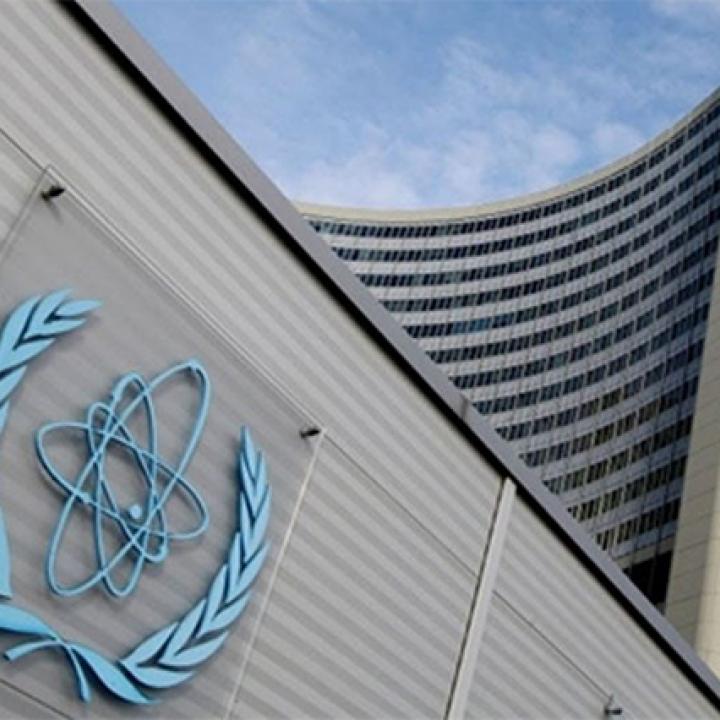

Tehran has a history of stepping up its nuclear violations after public rebukes; in the current environment, such escalation could have regional proliferation implications.
On June 5, behind closed doors, the International Atomic Energy Agency’s Board of Governors voted overwhelmingly to demand that Iran take urgent action to resolve concerns about its nuclear work and fully cooperate with IAEA requests. The resolution was proposed by Britain, France, and Germany, though the 20-2 vote was arguably undermined by the fact that Russia and China opposed it, the United States withheld its yea vote until the last moment, and twelve members abstained. Washington had initially threatened to abstain as well, preferring that the agency issue a comprehensive report on Iran’s nuclear activities instead—a document that would not be ready until after the U.S. elections in November.
In many ways, the board’s move is a risky leap of faith. Previous IAEA censure resolutions have prompted Tehran to retaliate rather than cooperate:
- After a June 2022 censure, Iranian nuclear facilities removed some IAEA cameras and other monitoring equipment.
- After a November 2022 censure, Iran began to enrich uranium to 60 percent, a technically short step away from the 90 percent necessary for a nuclear weapon. (For more on this terminology, see this Washington Institute infographic or the associated Iran Nuclear Glossary.)
Similarly, when IAEA director-general Rafael Grossi visited Iran in March 2023 and secured agreements to work out these and other differences, Tehran stalled on its commitments, then escalated the situation a few months later by banning some of the agency’s most experienced inspectors. Grossi visited again last month but returned to his Vienna headquarters apparently frustrated by the talks and Tehran’s longstanding obstinacy. In an interview with the Economist shortly after his trip, he stated that the 2015 nuclear deal was now an “empty shell”—indeed, Iran’s enrichment activity and other violations have dramatically increased in the years since President Trump withdrew from the deal in 2018 and negotiations with the Biden administration fell through.
Iran entering the nuclear weapons club would have more far-reaching consequences than North Korea’s leap two decades ago. According to Grossi: “The Middle East is completely different. Here, you would have a situation which would lead to more countries, if not openly seeking nuclear weapons, trying to get latency and trying to get closer to that because they would feel that the [IAEA safeguards] system is failing.” Asked about the prospect of the United States working out a civil nuclear agreement with Saudi Arabia—whose de facto leader, Crown Prince Muhammad bin Salman, has repeatedly stated that he would go for a nuclear bomb if Iran develops one—Grossi said he intends to “work very closely” with the kingdom. He then expressed more proliferation concerns, however: “Unfortunately, what we see is a trend, a growing attraction, the lure of nuclear weapons is there. We cannot deny it. It is very, very regrettable.”
How Tehran responds to the new IAEA censure is guesswork, but a response of some sort is almost certain. In March, U.S. intelligence officials indicated there is no evidence that Iran is currently trying to weaponize its uranium, but many observers are skeptical of this assessment, as shown by frequent reports that Iran would only need a matter of days to produce enough high-enriched uranium for one or more weapons. There is always the possibility the regime could carry out some sort of nuclear test, but Supreme Leader Ali Khamenei seems very cautious about taking such a step. Iran’s response might also be delayed by the recent helicopter crash that claimed the lives of its president and foreign minister and spurred preparations for an emergency election.
For their part, European officials could decide to fire another shot across Tehran’s bow by threatening to “snap back” the international sanctions that were suspended by the 2015 nuclear deal. Yet no such action seems likely before 2025, when the snapback provision is formally scheduled to expire on its own under the deal’s terms. With U.S. elections in November, British polls in July, and just-announced French parliamentary elections later this month, there are perhaps too many moving parts for any bold Western follow-ups to the censure resolution in 2024.
Simon Henderson is the Baker Senior Fellow and director of the Bernstein Program on Gulf and Energy Policy at The Washington Institute.



